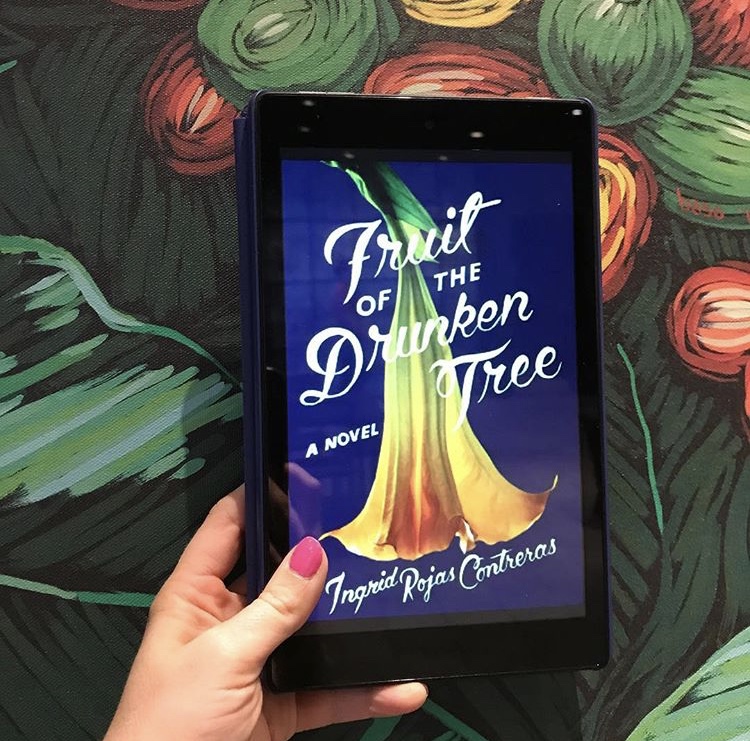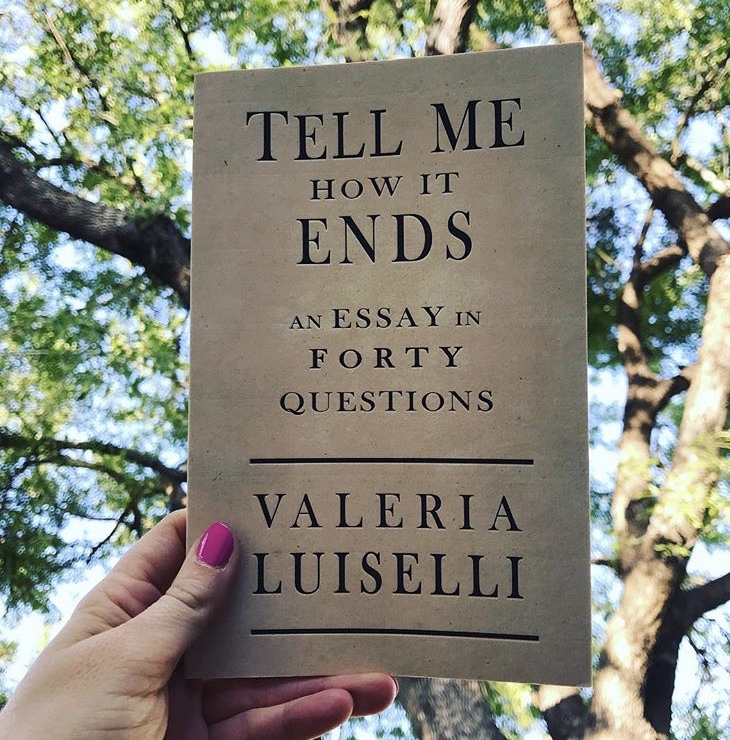I received a digital ARC of Fruit of the Drunken Tree from Doubleday on NetGalley. I’m grateful to Doubleday for their generosity with this powerful and timely read. All opinions are my own.

Synopsis
Set in the 1990s, Fruit of the Drunken Tree follows the Santiago family, presented primarily through the eyes of the youngest daughter, Chula, and their new maid from the guerilla-controlled slums, Petrona. Chula is immediately fascinated with Petrona while Petrona finds herself pulled in too many directions at once—forced to leave her own family to care for another, all while falling in love for the first time. As the conflict in Columbia between the paramilitary and the guerillas escalates, with Pablo Escobar at the center, Chula and Petrona are forced headlong into a crisis that will permanently alter both their lives.
Narrator
Though Chula is older when the book opens, the majority of the book takes place in her early childhood. My knowledge of world history is woefully full of holes and there’s a giant one where Columbia is on the map. This created a bit of a problem for me since my understanding of what was happening was limited to Chula’s understanding and her understanding was limited by her age and her parents’ sheltering her as much as they could from what was going on. This is where I shamefully admit that Wikipedia aided in my reading. Are there better and more authoritative sources of information out there? Yes. Did I have them immediately available on my phone while I was reading? No. So Wikipedia it was. Chula discusses Pablo Escobar (heard of him), Galan (nope), and the fight between the military, paramilitary, and guerillas (nope x 3) as if the reader knows what is going on with these people—this is where Wikipedia was helpful, to give me a basic primer on who was aligned with whom and why. If you also don’t know the basics of Escobar, Galan, and the struggle between those three groups, a quick bit of research to familiarize yourself with Columbia in the 90s will probably be helpful.
Chula isn’t an unreliable narrator, or at least, not deliberately so. She is, however, naïve and, therefore, limited. For example, she stays within the gated compound guarded by security guards—and yet because she wasn’t preoccupied by how this limited her life, I wasn’t thinking about the reason for this set-up being to prevent kidnappings. Chula presents her life at face value and it is easy to be lulled into the false feeling of safety that she generally feels. The action and events as the book approached its climax seemed all the more shocking when they happened—as Chula didn’t see them coming, neither did I. It wasn’t until the end of the book when I had a firmer grasp on what was happening that earlier events and statements in the narrative took on a deeper meaning. In many ways, this naivety was welcome—experiencing the book as Chula experienced her life was a new experience for me as a reader. Because I didn’t know where the narrative was going, I was sucked in and everything felt fresh.
Class
Fruit of the Drunken Tree is steeped in class issues that are highlighted by Chula’s ignorance of her place within Columbian society and her mother’s low-stakes attempts at being the upper-class savior of Petrona. Chula lives a charmed life in Bogota behind the fences of her upper-class neighborhood, though like most young children doesn’t realize it. Indeed, there is a much richer woman who lives nearby whom Chula and her friends call “The Oligarch” without irony and without appreciation for their own deeply privileged place within Columbian society. When her family hires a new maid, Petrona, Chula comes to care deeply about her and sees her as a friend, in the way of children who think it is possible for the thirteen year-old maid to be the best friend of the seven year-old girl she waits upon.
Even Chula’s mother who grew up in the slums herself places herself in the role of savior, forcing a fancy First Communion upon Petrona, yet failing to act as savior when the stakes are higher. As Americans, we so often want to put ourselves into this role—we want to save the less fortunate by giving them the things that cost very little or nothing to us. Yet when we are in the position to do more, to actually put action behind what we say we believe, we don’t—these acts will cost us more than we are comfortable giving up. It is in the moments when our comfort outweighs our compassion that our privilege is perhaps most highlighted.
Flight Pick: Tell Me How It Ends: An Essay in Forty Questions and the current refugee crisis at our southern border

The children who cross Mexico and arrive at the U.S. border are not “immigrants,” not “illegals,” not merely “undocumented minors.” Those children are refugees of a war, and, as such, they should all have the right to asylum. But not all of them have it.
Every now and then I recommend a second book that I think should be read alongside another—a “book flight” as Anne Bogel calls them. While it focuses on the children coming from Honduras, El Salvador, and Guatemala rather than Columbia, Tell Me How It Ends is a book that is a must-read. It adds context to Fruit of the Drunken Tree—it turns Rojas Contreras’s tale of a single family’s immigration story ten-plus years ago into a microcosm of what these children are fleeing now. Reading increases empathy and Luiselli’s essay is the bridge that connects Fruit of the Drunken Tree to the refugee crisis on our southern border. If I were Chula or Petrona and my best chance at continuing to live were to risk life and limb crossing Mexico in the hands of a coyote and present myself at the United States border, I would take it. Rojas Contreras’s story leaves no doubt as to what waited Chula’s family or Petrona in Bogota. Chula was lucky to have a family with connections to an American company that could help her come the “right” way—but right and wrong ways be damned. When your choice is death or the American border, you chose the border.
Tell Me How It Ends makes clear that the flood of humanity presenting itself at our border (because let’s be clear—the vast majority are presenting themselves at the border as refugees, not sneaking over and trying not to get caught) are the fruit of the tree the United States planted in Central American countries many years ago. We funded the military groups to counter what was seen as a leftist/Communist threat. Our money fueled the wars between the military, guerillas, and paramilitaries. We remain the largest consumer of Columbia’s cocaine—American money that continues to send large sums of money to keep these conflicts going. This is the violence these children are fleeing. We planted this poisonous tree and we continue to water it. These children and the chaos they are feeling are the fruit of our tree.
Recommended
At a time when white men still tell most of our history, Fruit of the Drunken Tree (though fiction), is a highlight of female storytelling. Here are the girls and women forced to be brave in the chaos and conflict of 1990s Columbia. Fruit is a story of the many forms of female resilience. This book was a highlight of my reading so far this year and will likely earn a place on my Best of 2018 reading list at the end of the year.
Notes
Published: July 31, 2018 by Doubleday (@doubledaybooks)
Author: Ingrid Rojas Contreras (@i_rojascontreras)
Date read: August 12, 2018
Rating: 5 stars
Flight: Tell Me How It Ends
Published: April 4, 2017 by Coffee House Press (@coffeehousepress)
Author: Valeria Luiselli
Date read: August 15, 2018
Rating: 5 stars

